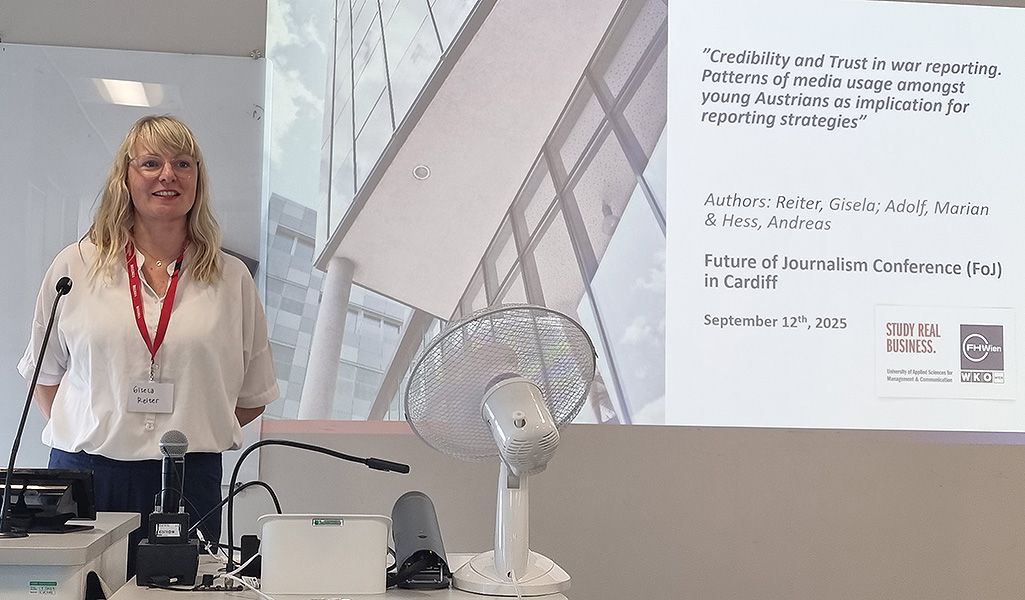At the renowned Future of Journalism (FoJ) Conference 2025, researchers from the Department of Communication (DoC) presented a study on trust and credibility in war reporting.
Their contribution at Cardiff University (UK) examined how young adults in Austria respond to media reports about wars – especially the war in Ukraine – on social networks. “War reporting in particular provides a good opportunity to examine the growing challenges contemporary journalism is facing as a result of censorship, propaganda, and restricted access,” said head of studies Gisela Reiter.
Different expectations and deliberate news avoidance
The qualitative study by Reiter and her DoC colleagues Marian Adolf and Andres Hess shows that there are differences in expectations of public and private media on social platforms. In the context of war reporting, a lack of balance, transparency, and unclear figures on casualties are viewed particularly critically. While private media are perceived as more biased, many users appreciate their independence from state institutions. Overall, there is a certain media fatigue, which is often accompanied by deliberate avoidance of news, as the prevailing news situation is perceived as stressful and negative.
“Conflicting Journalisms: Resistance, Struggle and Prospects”
The ‘Future of Journalism (FoJ) Conference’ is an academic conference held at Cardiff University every two years. It explores challenges and innovations in journalism, with recent themes including “Conflicting Journalisms: Resistance, Struggle and Prospects” in 2025. It brings together scholars to discuss topics such as AI in journalism, political polarisation, misinformation and sustainable business models.

